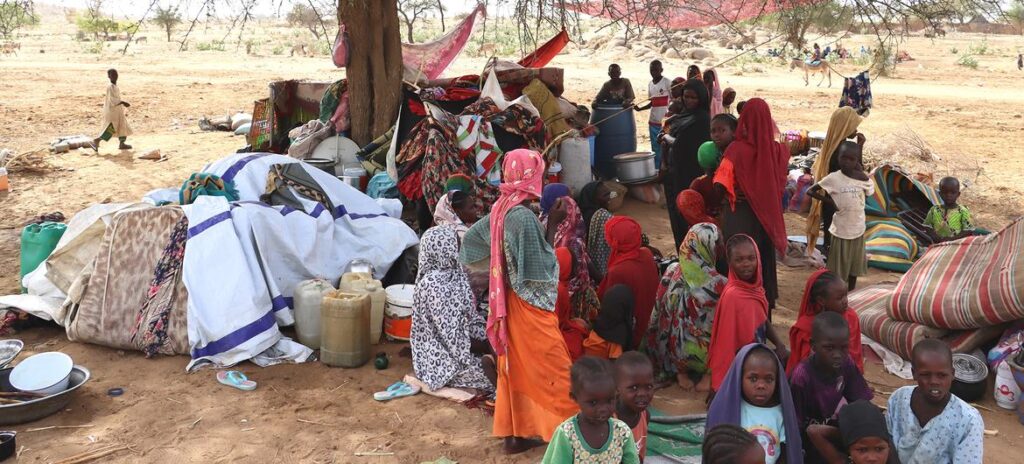Sudan is facing a hunger catastrophe on a scale not seen since the Darfur crisis in the early 2000s, UN agencies have warned.
A statement by the heads of three UN agencies, released simultaneously in New York and Rome on Thursday, said new data revealed that over 750,000 people were experiencing catastrophic levels of food insecurity with 25.6 million others in crisis levels of hunger.
The Food and Agriculture Organization (FAO), the UN Children’s Fund (Unicef) and the World Food Program (WFP) have been warning of rapid deterioration in conditions for the people of Sudan, particularly children, as food security is torn apart by war that has ravaged the country for more than a year. Collectively, the agencies have mobilized a large-scale response inside Sudan and in neighboring countries where more than 2 million refugees have sought safety.
The agencies called for an immediate ceasefire and renewed international efforts to enable the humanitarian response to be expanded and to allow the agencies to deliver at the speed needed.
They said the present crisis spanned the whole country, with catastrophic levels of hunger even reaching the capital Khartoum and Gezira State, once Sudan’s breadbasket.
The worst conditions, the agencies said, are in the areas hardest hit by fighting and where people displaced by the conflict have gathered. Some 25.6 million people were in the high levels of acute hunger (IPC Phase 3+).
FAO, Unicef and WFP are leading multi-sectoral famine prevention efforts across Sudan
WFP has reached over 3 million displaced and vulnerable people so far this year and was ramping up assistance to reach an additional 5 million people by year-end.
After reaching 3.8 million people in the first half of the year through seed distributions and vaccination, FAO was now preparing to support more than 1.8 million farming and pastoral households, equivalent to 9 million people, to resume livelihood activities and produce food. The food agency has purchased almost 8,000 tons of cereal seeds and will reach over 870,000 farming households across Sudan, including in Darfur and Kordofan, where food insecurity has reached catastrophic levels.
Since the conflict started in April 2023, Unicef has reached close to 5.5 million children with nutritional screening and more than 322,000 children suffering from severe malnutrition with lifesaving treatment. The agency was scaling up multi-sectoral response to prevent more child deaths, reaching over 5 million people with safe water, and vaccinating over half a million children against measles in the first five months of this year. Unicef was also getting children back into learning, providing cash to over 350,000 pregnant and lactating women and their families, and making efforts to protect children from violence, separation, and trauma.




